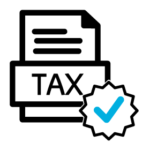Integration of all procurement entities to the e-procurement module
Kenya is working towards securing the seamless integration of all procurement entities to the e-procurement module under the Integrated Financial Management System by the 1st January, 2019. This will increase functionalities that ensure commitment to price guidelines as published by the Public Procurement Regulatory Authority, analytical tools and procedures to flag out suspicious and repeated payments, payments above contracted pricing transactions and any other breaches. Public Procuring Entities will from 1stJanuary, 2019 undertake their procurement through the e-procurement module.
Completion Status:
Commitment filtering:
The commitment is specific as it is anchored in Article 227 of the Constitution of Kenya which provides for the establishment of a system for the procurement of goods and services that is fair, equitable, transparent, competitive and cost-effective. The article further requires development of a legislative framework to that effect, which was provided for by the Public Finance Management Act (2012) and the Public Procurement and Asset Disposal Act 2015 Sec. 12 (1) (e) of the Public Finance Management Act, which mandates the National Treasury to design and prescribe an efficient financial management system for the national and county governments that will also ensure transparent financial management and standard financial reporting. Sec. 7(2) (c) of the Public Procurement and Asset Disposal Act mandates the National Treasury to design and prescribe an efficient procurement management system for the national and county governments to ensure transparent procurement and asset disposal as contemplated by Article 227 of the constitution. The commitment is a further elaboration of a strong efficient procurement system that provides price guidelines and has tools that flag suspicious transactions.
The commitment is sufficiently measurable as indicators include the launch of an electronic procurement system for all procuring entities, which should have indicative prices for all commonly used items to ensure that there are no price inflations by procuring entities.
Evaluation:
This is a new commitment made by the Government of Kenya to digitise and provide seamless integration of e-procurement in the existing IFMIS. In August 2020, the National Treasury invited stakeholders to provide input on the electronic government procurement (EGP) implementation strategy, which perhaps signals a start to the implementation of the commitment.
At the moment, procurement in Kenya is still done in a hybrid format with some processes happening online in the IFMIS system, while others are still done offline. Ideally, all bidders for government tenders should use the suppliers portal1 to register and submit their bids, but not all public procuring entities have automated their processes to allow for this. Additionally, the market price index is done separately and periodically by PPRA, and this is not part of IFMIS. IFMIS also does not have the capacity to flag suspicious and repeated payments, payments above contracted pricing transactions or any other breaches.
Challenges to effective commitment implementation
After the commitment was made, there was a change in leadership in June 2019 at the National Treasury, the ministry in charge of its implementation. This necessitated a review of IFMIS to assess the extent to it could accommodate the suggested additions. This technical review concluded that there was a need to drop further amendments to IFMIS in favour of a new eGP system.
While the roll out and implementation of the eGP does not require parliamentary approval, it requires a budgetary allocation. This was done in the 2020/2021 financial year, and roll out is likely to take place within the next two years.
Opportunities to accelerate commitment implementation
There has been increased discussion both nationally and globally about corruption in public procurement, especially in the wake of emergency procurement for pharmaceutical and medical commodities as part of the response to the COVID-19 pandemic. In this regard, there have been increased calls for strengthening public procurement through publicly accessible digital mechanisms through which all procurement information is easily available. There is no shortage of resources for governments willing to adopt this approach. These includes the open contracting data standards as well as systems currently in use in various countries such as Nigeria and Ukraine.
Recommendations
Map procuring entities capacities to uptake and implement the EGP to avoid challenges with roll out of the system
Training and capacity building of media and civil society organisations on how to improve their oversight role on public procurement processes
Sources:
- National Treasury suppliers portal, http://ifmis.go.ke/wp-content/uploads/2018/11/KENYA-SUPPLIER-PORTAL-SELF-REGISTRATION.pdf·↩

